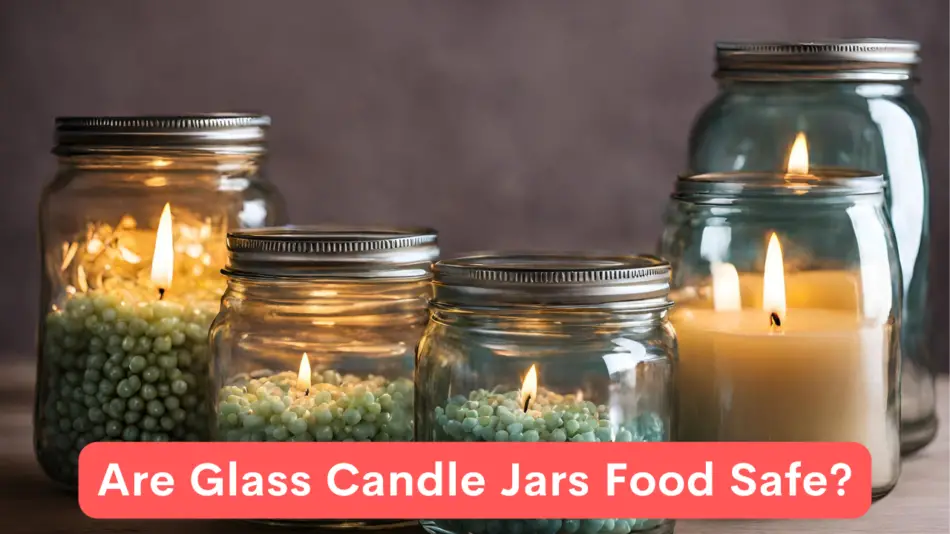
In an era where sustainability practices and DIY projects are more popular than ever, the question “Are glass candle jars food safe?” has become a topic of interest for many. As consumers look for ways to repurpose and recycle, understanding the safety of reusing glass candle jars for food storage is paramount. This comprehensive article aims to shed light on the subject, offering valuable insights, guidelines, and personal experiences to guide you through the process of safely repurposing glass candle jars.
Are glass candle jars food safe? Generally, glass candle jars can be food-safe if they are thoroughly cleaned of any residual wax and soot and if the glass is not treated with any chemicals that could leach into food. However, it’s important to ensure that the specific jar is not made of non-food-grade glass and to check for any damage that could harbor bacteria or lead to breakage.
Understanding Glass Candle Jars and Food Safety
Glass is widely regarded as a safe material for food storage due to its non-reactive nature. However, when considering whether glass candle jars are food-safe, it’s essential to delve into factors such as the type of glass used, the previous contents of the jar, and the cleaning process.
Types of Glass and Their Safety
- Soda-Lime Glass: The most common type of glass, which is generally safe for food use after a thorough cleaning,.
- Borosilicate Glass: Known for its durability and resistance to thermal shock, it is also safe for food use.
- Lead Crystal: Rarely used for candles; it contains lead, which can leach into food and is not recommended for food storage.
Assessing the Previous Contents
The safety of reusing glass candle jars for food also depends on the candles’ previous contents. Most commercial candles are made from paraffin, soy wax, or beeswax, with paraffin being a petroleum by-product. While the wax itself may not directly make the glass unsafe, residues and fragrances could pose a risk if not completely removed.
How to Prepare Glass Candle Jars for Food Use

Step-by-Step Cleaning Process
- Wax Removal: Start by removing any leftover wax. Freezing the jar makes it easier to chip away the wax, or you can use the warm water method to melt and remove it.
- Deep Cleaning: Wash the jar with hot, soapy water. For jars with stubborn scents or residues, a mixture of vinegar and baking soda can help neutralize odors and dissolve residues.
- Sterilization: To ensure the jar is entirely food-safe, sterilize it by boiling it in water for 10 minutes or baking it in the oven at 225°F for 20 minutes.
I’ve successfully repurposed dozens of glass candle jars for food storage in my kitchen. One memorable project was turning a large, beautifully shaped candle jar into a cookie jar. After ensuring it was thoroughly cleaned and sterilized, I felt confident using it to store homemade treats. Not only did it become a conversation piece, but it also served as a testament to the practicality and safety of reusing glass jars.
FAQ: Glass Candle Jars and Food Safety
Can all glass candle jars be reused for food storage?
While most glass jars can be safely reused after proper cleaning, it’s crucial to inspect the jar for any cracks or chips that could harbor bacteria.
How can I ensure that all candle scents and residues are removed?
In addition to thorough cleaning, allowing the jar to air out for several days and using odor-neutralizing solutions like baking soda can help ensure no residual scents remain.
Conclusion
Are glass candle jars food safe?” Yes, with the right preparation and cleaning methods, glass candle jars can be safely repurposed for food storage. This practice not only contributes to sustainability efforts by reducing waste but also allows for creative reuse in the kitchen. By understanding the types of glass, assessing previous contents, and following a thorough cleaning process, you can confidently transform candle jars into safe, functional food storage containers.